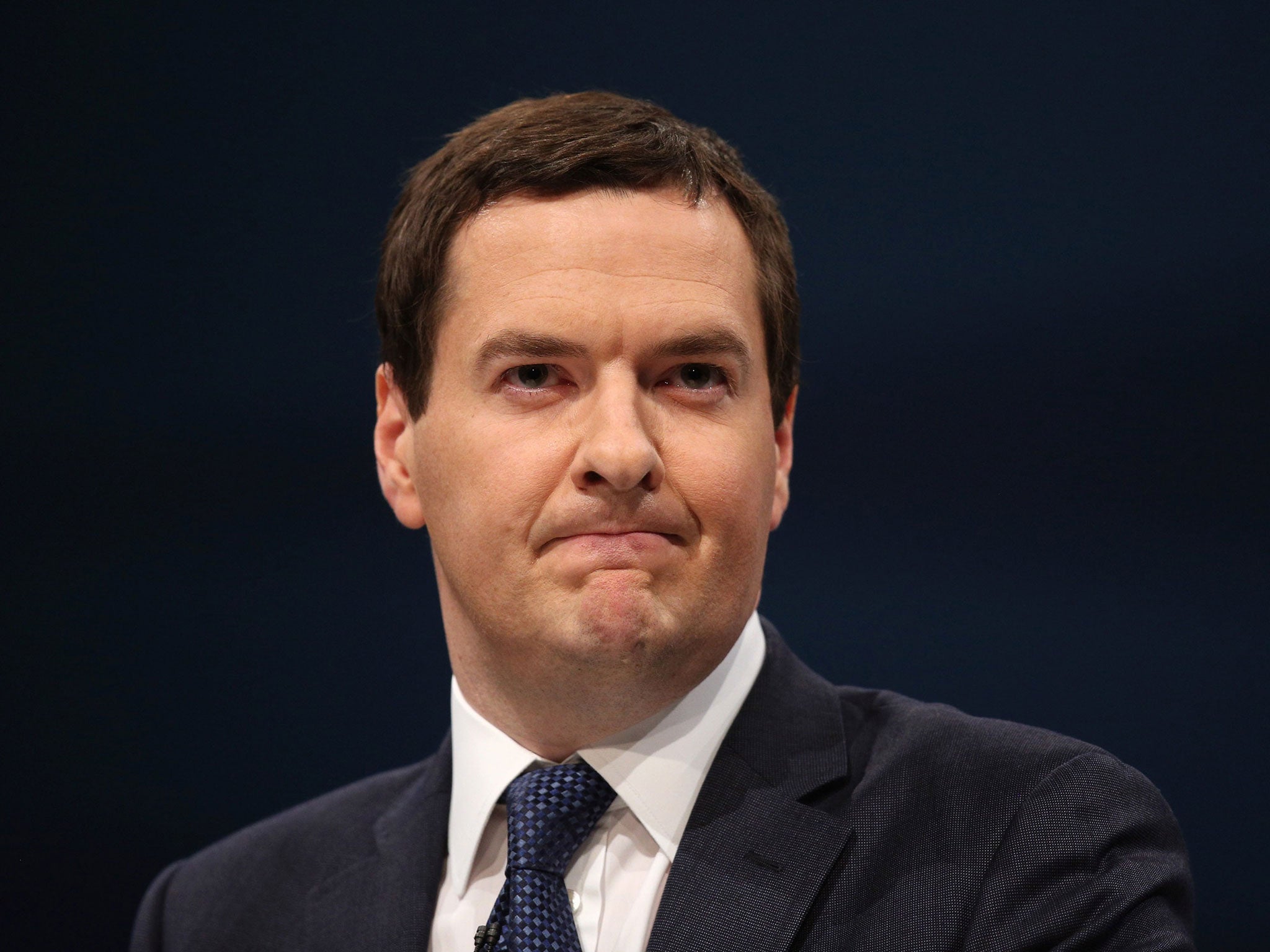George Osborne’s cuts ‘risk putting UK in breach of UN Convention on children's rights’
Children’s Commissioner delivers damning appraisal of austerity drive

Your support helps us to tell the story
From reproductive rights to climate change to Big Tech, The Independent is on the ground when the story is developing. Whether it's investigating the financials of Elon Musk's pro-Trump PAC or producing our latest documentary, 'The A Word', which shines a light on the American women fighting for reproductive rights, we know how important it is to parse out the facts from the messaging.
At such a critical moment in US history, we need reporters on the ground. Your donation allows us to keep sending journalists to speak to both sides of the story.
The Independent is trusted by Americans across the entire political spectrum. And unlike many other quality news outlets, we choose not to lock Americans out of our reporting and analysis with paywalls. We believe quality journalism should be available to everyone, paid for by those who can afford it.
Your support makes all the difference.George Osborne is presiding over “scandalous” cuts in support for poor working families that are putting the UK in breach of its commitments to the United Nations, the Government’s Children’s Commissioner for England warns today.
In a highly critical report ahead of the Autumn Statement, the Commissioner says deficit-reduction policies have cut the incomes of single parents and poor working families by as much as 10 per cent since 2010.
And she warns that the increasing inequality that has resulted means that the UK is now in breach of the UN Convention on the Rights of the Child, which compels signatories to protect children from the adverse effects of economic policies.
In an interview with The Independent before the report’s publication, the Commissioner, Dr Maggie Atkinson, said research showed clearly that government policies to reduce the deficit were disproportionately affecting children from poor families.
“Nobody is saying that there isn’t a deficit to close,” she said. “Our issue is that at the moment, it is the poorest in society who have least to fall back on that are paying the greatest price for trying to close that deficit. It is patently unfair. It is patently against the rights of the child.”
The Commissioner’s report reflects the views of campaign groups who have attacked restrictions to working-age benefits. But they carry additional weight because the Commissioner’s office has a legal duty to promote and protect the rights of all children in England.
The report will be considered by the United Nations Committee on the Rights of the Child when it examines the UK’s performance against the Convention in 2016. Under current Conservative plans the welfare budget will be reduced by a further £12bn by 2018 as part of deficit-reduction plans. Dr Atkinson said that unless the Government changed tack, the UN report would be “very, very damning”.
“The basic fact is that there are families living in the fifth-biggest economy in the Western world who are making choices about whether they can afford to heat their house or feed their children,” she said. “We need as a nation to decide whether we are in the business of making the poorest pay the highest penalty when there is a gap between what the country has in its coffers and what its expenses are.”
Dr Atkinson also contrasted the cuts in working-age benefits that affected children to the protections given to pensioners under the Government’s spending plans. “I don’t think this should be ‘generations against each other’ territory but… what we are talking about is a voting versus a non-voting age group.”
However, the report has been dismissed by the Treasury as “partial, selective and misleading”. The Treasury said it ignored the benefits of being in work for families with children, the implications of wider public spending on areas such as health and education, and the measures taken by the Government to protect children from the effects of the recession.
“The Government’s long-term economic plan is tackling the root causes of child poverty by putting more people in work than ever before and reducing the number of children in workless families by around 390,000 since 2010,” a spokesman said.
Join our commenting forum
Join thought-provoking conversations, follow other Independent readers and see their replies
Comments